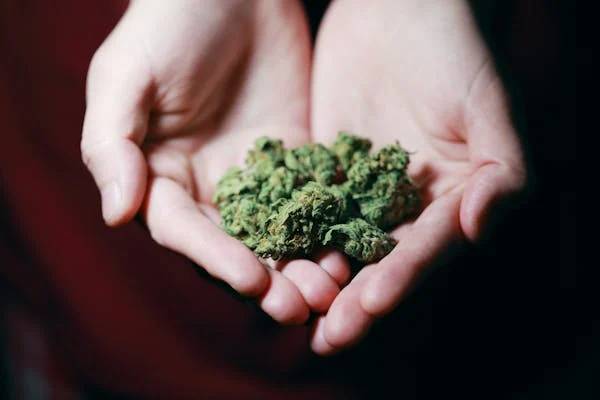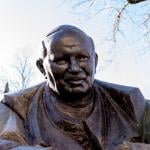
THE RELIGION GUY’S ANSWER:
All the buzz after President Biden’s State of the Union address ignored his boast about “directing my Cabinet to review the federal classification of marijuana.” Since 1970, the federal government has designated marijuana, a.k.a. cannabis, as a dangerous Schedule I drug alongside ecstasy, heroin, and LSD, therefore outlawing manufacture, distribution or possession, except for qualified research.
But prodded by the President, the Health and Human Services department in 2022 launched a review and last August 29 reversed itself, recommending that the Drug Enforcement Administration (DEA) instead redefine marijuana as a less risky Schedule III drug (akin to Tylenol combined with limited codeine, katamine, steroids, and testosterone supplements).
There’s been a huge recent expansion of “recreational” marijuana use, with markets now legalized by 24 states and the District of Columbia. (Far less disputed medical uses are now legal in 38 states.) That creates an anomalous conflict between these states and the continued federal restrictions. Schedule III status would create a cash bonanza for the recreational marijuana industry by allowing sellers to deduct business expenses on federal taxes.
Amid political pressures
As the DEA ponders what to do, it has received political pressure to make the Schedule III switch from six governors and from 12 state attorneys general, all Democrats. Pleas to maintain Schedule I status went to the DEA from eight Senators and six House members, all Republicans, and from a bipartisan alliance of six former DEA administrators and five former directors of White House drug policy. Meanwhile, 31 House members supported a Congressional Cannabis Caucus bid for not only Schedule III status but full legalization.
As for religion, a 2021 Pew Research Center poll found that 60% of American adults favored legal recreational use while another 31% supported legalization only for medical uses, with 8% wanting total illegality. Among the Catholics, there was 53% recreational support, with a familiar Protestant split showing 44% support among white evangelicals compared with 62% for non-evangelical whites (mostly in “mainline” churches) and 63% for Black Protestants. Religiously unaffiliated respondents supported recreational use by 76%.
On this issue, there’s a notable gap between that level of liberalization backing by lay churchgoers and widespread opposition among the clergy and in official church proclamations. A 2021 survey by Lifeway Research showed a mere 18% of U.S. Protestant pastors favored legalization “for any purpose,” meaning recreational use. With that typical split, “mainline” clergy went 43% “for any purpose” compared with just 10% for the evangelicals. Also, 78% of the pastors believed “it is morally wrong to get high smoking marijuana.”
Precedents from alcohol
Churches’ longtime historical parallel with marijuana involved alcohol abuse. Unlike Catholics (or Jews), Protestants boosted America’s oldest existing third party, the Prohibition Party, founded in 1869. Protestant women often combined activism on Prohibition and the right to vote. Most Protestants favored, and eventually achieved, a remarkable amendment of the Constitution in 1919 to forbid the “manufacture, sale, or transportation of intoxicating liquors” (repealed 14 years later).
Looking at the two largest Protestant denominations, the Southern Baptist Convention (SBC) advocated Prohibition every year beginning in 1890 and called the 1919 amendment “the greatest victory for moral reform in America since the Declaration of Independence.” After repeal, Baptists often continued legal prohibition campaigns in states and localities.
Regarding marijuana, current SBC thinking was expressed in 2014 by Russell Moore, then leader of the denomination’s socio-political agency (and now editor in chief of the evangelical magazine Christianity Today). Though the Bible repeatedly condemns drunkenness, Moore saw solid scriptural grounds for medicinal marijuana when patients are dying or facing severe pain, based upon Proverbs 31:6: “Give strong drink to him who is perishing, and wine to those in bitter distress.” But he worried that medical use has become a “laughable fiction” that masks recreational intoxication and raises “a tremendous issue of wrecked lives.”
“Health Hazards”
Last October, Moore’s former agency urged the DEA to reject the Biden Administration’s liberalization bid, citing churches’ longstanding opposition to recreational drug use due to the known “health hazards.”
With the United Methodist Church, the nation’s second-largest Protestant body, its forebears established the Board of Temperance, Prohibition and Public Morals in 1916. This agency, evolved into today’s General Board of Church and Society, still advocates personal abstinence from alcohol and “illicit drugs,” including marijuana.
Official Methodist teaching, last updated in 2016, warns against marijuana and other “commonly used products that alter mood, perception, consciousness, and behavior” and are frequently “a precursor to the use of other drugs.” It urges that acceptable medical treatments prescribed by professionals not “be seen as encouraging recreational use.”
Though U.S. Catholics have always favored alcohol temperance rather than prohibition, bishops unite with Protestants in opposition to recreational marijuana. A major, thoroughly researched Catholic assessment of the past decade’s experience came last November in a 60-page pastoral letter by Denver’s Archbishop Samuel Aquila, text at https://archden.org/that-they-might-have-life/. He’s an appropriate leader on this question since Colorado became the first state to permit recreational marijuana sales in 2014.
Accord favors medical uses
Aquila unites with other Christian leaders in favoring medical uses, so long as they apply standard research findings and are carefully controlled. On the basis of the Catholic Catechism, his starting point is God’s desire for human flourishing as viewed by moral theology. He says intoxicants harm “the very faculties that make us human” by inhibiting the use of reasoning, dulling judgment, temporarily limiting memory and concentration, blurring the moral will and conscience, and training emotions to expect “quick relief from artificial pleasure.”
One new factor is the increased content of THC, marijuana’s psychoactive chemical. Aquila notes that till the 1990s normal THC potency was around 2% but since 2015 it typically reaches 15% or higher. Aquila also disputes the distinction that “hard” drugs are the problem, not “soft” drugs, because marijuana can create psychological dependency even if there’s no addiction from physical dependency. In both categories, any and all drug use is encouraged when culture views drugs as an answer to problems, he asserts.
Addressing the arguments employed to foster recreational usage, retail businesses may boom and states get increased taxes but Aquila contends that those gains are far outweighed economically by the added costs of resulting social ills. His considerations, which vary by individuals, include cited research as folows.
“Marijuana use disorder”
In Colorado, recreational use has increased 25% since legalization and “marijuana use disorder” diagnosis has risen to 3.3% of the population.
Colorado’s marijuana-related driver intoxication arrests rose from 676 in 2014 to 1,513 in 2020 and traffic deaths with drivers who tested positive increased from 55 to 131 in the same time frame. (There are similar patterns in Washington, the other state pioneer on legalization.)
Smoking the high-potency marijuana every day can increase chances of developing psychosis by nearly five times, with particular concern about schizophrenia.
A slight drop in IQ is documented when patients started using in their teens.
Heavy users have shown increases in thoughts or attempts of suicide. In Colorado, 105 persons with marijuana in their systems committed suicide in 2013 compared with 236 by 2019.
The University of Colorado reported marijuana-related emergency room visits have tripled since legalization.
One oddity is that proponents hoped legalization would wipe out the black market in drugs, but media reports say in practice this has not happened in California or New York.
The archbishop concludes that “while drug use can offer temporary relief and escape, it is certainly not a solution to our problems and the costs far outweigh the benefits.” To him, “the legalization of marijuana and cultural acceptance of drug use have been disastrous for our society,” with those most vulnerable bearing the heaviest burdens that result.
Note: This 252-page file explaining the Biden Administration’s policy shift was released January 15: https://www.dropbox.com/scl/fi/pw3rfs9gm6lg80ij9tja6/2023-01171-Supplemental-Release-1.pdf?rlkey=v5atj0tcnhxhnszyyzcwdcvvt&dl=0/













